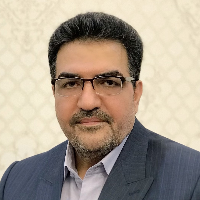Evaluation of Medical Competency in Medical Graduates Working in Educational and Medical Centers in Tehran
Measuring the learning environment is one of the necessities to improve the quality of students' learning. Therefore, in the curriculum planning based on competence, it is necessary to use the measurements to ensure the quality of education. Nowadays, international centers pay special attention to the issue of cultural competence, and since the beginning of the 1960s, they have investigated the theoretical foundations and definitions of the issue and have designed various models for quantitative and qualitative evaluation of cultural competence in world’s reputable medical sciences universities. Despite that the international scientific community has addressed this issue and in spite of the cultural diversity in Iran, it was only in the last few years that some review articles have emphasized the necessity of cultural competence in medical education and some studies have investigated and evaluated the learning environment using international tools.Also, reviewing the studies on new teaching approaches in Iran shows that although cultural competence is not considered in clinical education and they are not academically trained in the field of culturally competent care, the medical team fulfill the cultural needs of their patients based on their cultural intelligence and initiative. In this situation, only a small part of this culture would be officially transferred to students during the curriculum hours, and the acceptable values, beliefs and behaviors would be transferred through the covert curriculum.Accordingly, considering its importance and necessity, it is recommended that this issue should be taken into consideration in clinical education approaches, especially new approaches, and quantitative and qualitative studies should be used to measure and improve the education of this important notion.Therefore, the purpose of this research is to evaluate the cultural competence status of medical graduates in Tehran in order to provide a model that is appropriate for the background and context of Iran’s universities.
This research is descriptive and analytical. The data collection tool in this research was a valid and reliable researcher-made questionnaire. The first part of the questionnaire included demographic information and the second part had 64 valid and reliable questions in 4 main subgroups as: cultural awareness, cultural knowledge, cultural skills and transcendental motivation. This questionnaire was conducted on a statistical sample of 800 graduates of medical sciences, working in hospitals and medical centers in Tehran, using random sampling method. Quantitative data was analyzed using SPSS-24 and internal correlation, independent t-test and analysis of variance were analyzed.
Out of 800 questionnaires, 542 were returned, of which 507 questionnaires were thoroughly completed; which is an acceptable 67% return rate. Also, 82.6 percent of the respondents were women which indicates that women cooperate more in filling out the questionnaires as they participate more in the activities and were more in number.Cronbach's alpha coefficient for the whole instrument (64 questions) was 0.96. The highest value for the domain of transcendental motivation was 0.89 and the other domains were 0.88.The results of the independent t-test show that although there is no significant difference between male and female medical students regarding the status of cultural competence, the average scores of men were higher than women in the domains of transcendental motivation, knowledge and cultural skill. But women had a higher score in the domain of cultural awareness. Also, the results of the independent t-test based on marital status show that there was a significant difference between the average scores in 4 domains (transcendental motivation, cultural awareness, knowledge and skills) in which the average scores of married people were higher than single respondents.The results of the one-way ANOVA analysis showed that there is no significant difference between cultural competencies based on the university, but there is a significant difference in accordance to age, field of study, degree, work experience andworkplace. According to age, in all the 4 domains, the average score increases while aging. Also, based on the field of study, the average of 3 domains (cultural awareness, knowledge and skills), nursing students had a higher average, and in the domain of transcendental motivation, midwifery and then nursing students had a higher average than other fields. Finally, the average score increases with the increase in work experience.The final average of the questionnaire was calculated as 3.92+0.48 out of 5, in which the highest score was for the domain of transcendental motivation with a score of 4.15+0.48 out of 5, followed by awareness and skill; the knowledge domain had the lowest average with a score of 3.68±0.59 out of 5. According to the averages obtained in different domains, the general statue of cultural competence of medical students in Tehran is higher than average and is acceptable.In the field of the transcendental motive, respecting values and beliefs, giving priority to humanity and paying attention to God's consent had the highest average, and to enjoy serving different people had the lowest average. In the domain of cultural awareness, the awareness of one's own cultural beliefs and attitudes had the highest average, and familiarity with the differences in health behaviors of different cultures had the lowest average; in the domain of cultural knowledge, knowing spiritual and religious beliefs had the highest average, and knowing common methods of traditional treatments, knowing the history of traditions and knowing the nutritional beliefs of different cultures had the lowest average. In the domain of cultural skills, serving without bias and practicing communication skills had the highest average, and generating new knowledge had the lowest average.
This study showed that the graduates' evaluation of the cultural competence of the educational environment is positive, therefore, it is recommended to emphasize using appropriate methods to enhance the factors that have positively affected the evaluation of students.
- حق عضویت دریافتی صرف حمایت از نشریات عضو و نگهداری، تکمیل و توسعه مگیران میشود.
- پرداخت حق اشتراک و دانلود مقالات اجازه بازنشر آن در سایر رسانههای چاپی و دیجیتال را به کاربر نمیدهد.



